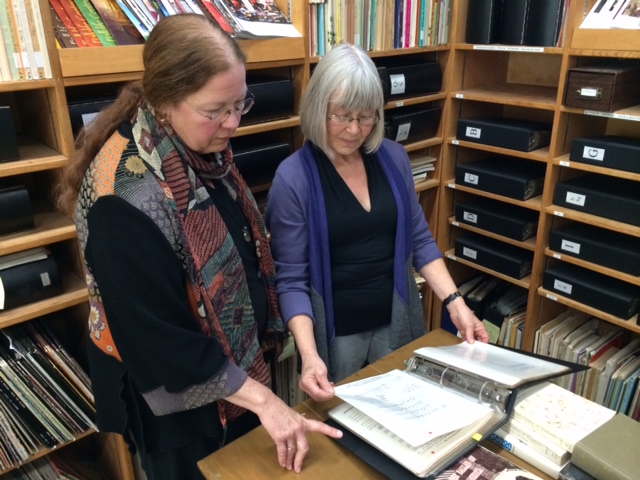"Even if it's just by adding the clapping or something like that," Needleman says. "It’s not natural for it to just be one person singing."
The archive currently has more than 300 songs transcribed and cataloged in minute detail. The archive is mostly designed as a tool for teachers looking to use folk music in their classrooms. So if you wanted an African-American spiritual with Southern roots, using a hexachord scale and a strophic form with refrain, you will find it.
One option would be "Kumbayah." Like many folk songs, "Kumbayah" has earlier origins and was known as "Come By Here."
This recording features female prison inmates in Florida, back in 1936. Needleman says the folk song used to be a plea for help from God, not just an ode to peace and love.
"It's not this sentimental kind of feeling that “Kumbayah” seems to have become," Needleman says. "This is like, 'We’re down in trouble. Lord, come by here. Come, we need you, Jesus! Won't you come by here.' There’s a kind of a force of urgency that’s in the song."
The Kodály Center's director, Anne Laskey, says she's worried that commercialized music is eclipsing a piece of America's heritage.
"Genuine folk music has been handed down from parents to children, through generations, and it changes, and each time it changes and might develop something deeper, some deeper meaning. It’s a very different thing than someone writing a folk song and recording it and having it be this one thing that never changes," Laskey says.
"Mary Has a Red Bird" is good example of this oral history. A father and daughter in Texas sang this recording 75 years ago:
"This was a song sung to the babies way back in the cotton fields of slavery back down in about 1845," Henry Truvillion explains to the archivist after singing the song. Then he names the generations who sang this melody to their children, and eventually, to him.
Needleman, Laskey and the team at Holy Names will continue cataloging music into the archive and collecting new recordings. They want American folk songs that are both beautiful and typical of the music from various cultures and eras. The archive is looking for people to submit new songs, transcribe submitted songs and sing new recordings of old songs.
